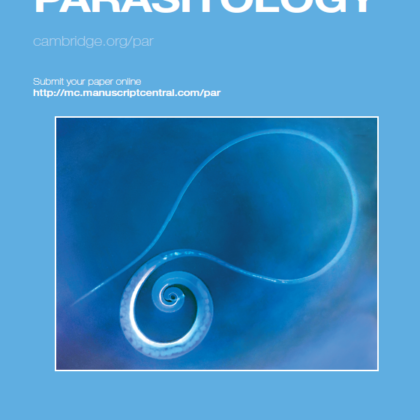The Origin of Parasites
This Feburary Parasitology published an Open Access Supplement entitled The Evolution of Parasite Genomes and the Origins of Parasitism. The guest-editor Dr Andrew Jackson from the Department of Infection Biology at the University of Liverpool, discusses the special issue below.
“Parasitism has evolved on numerous occasions in many different branches of life. Parasites contribute a significant proportion of biological diversity, while the biology of all free-living organisms has been shaped, to some extent, by their interactions with parasites. For these reasons, the origins and evolution of parasites is a core question in biology. Like many other parts of biology, our understanding and approach to the evolution of parasites has been changed fundamentally by the genomic ‘revolution’ and the time is now ripe to revise what we know in the light of ten years of progress in sequencing and comparing parasite genomes of all kinds.
This special issue of Parasitology develops some of the discussions that took place at a Wellcome Trust Hinxton Retreat in April 2013, at which parasitologists working with diverse parasites and approaches came together to explore their common ground. The articles presented here deal with all aspects of the evolution of parasites, from the ancient origins of parasitic lineages, among malaria parasites and nematodes for example, to the evolutionary mechanisms leading to adaptation, such as natural selection and horizontal gene transfer. They show how genome sequences have improved our ability to ask questions, for example in clarifying phylogenetic relationships among parasites, which are vital for determining likely origins, in testing hypotheses of phenotypic transition, and in precisely estimating the strength of natural selection. A great deal of new knowledge about parasite evolution has emerged as a result, allowing us to revisit old questions. Are parasites reduced relative to free-living organisms? How are parasites specialized for causing disease? How much of parasite biology is shaped by adaptation, relative to the constraints inherited from the past?
So parasite genome sequences have provided new ways to ask old questions. This special issue provides a consensus on how parasite genomes evolve and recognizes some of the evolutionary themes that cut across parasite genomes, for example, the innovation of cell-surface proteins. It updates and extends the debate around the origins of parasitism and will stand as a touchstone for this fundamental question in the coming years.”






